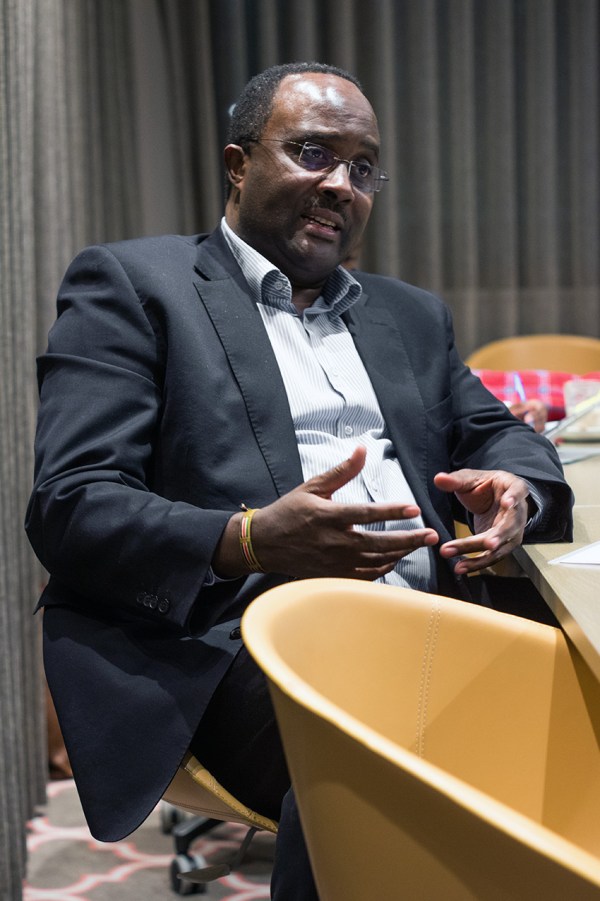With the same leading industries as South Australia and a rapidly growing middle class, Kenya’s High Commissioner says his country is primed to build partnerships with Adelaide entrepreneurs.
Connecting with Kenya: Adelaide’s key opportunity in Africa
Adelaide businesses are beginning to make in-roads throughout China – where one of the world’s fastest growing middle classes is developing a taste for our dairy and wine, amongst other products.
But while we’re creating sister city relationships with our largest Asian neighbour and engaging in soft power moves there through the likes of our football teams, we’re largely unaware of the rapidly developing economies that offer opportunity to the west.
Africa’s middle class is exploding, and Kenya has the most advanced economy in the eastern and central parts of the continent. Of a population of more than 45 million, almost half are considered middle class.
When Kenyan high commissioner Isaiya Kabira and deputy head of mission Munyasya Mwangangi visited Adelaide last weekend, their country’s economic rise was top of mind.
In town to celebrate the 53rd anniversary of Kenya’s independence with Adelaide’s 2,500 strong ex-pat Kenyan population, the pair also met with Lord Mayor Martin Haese and local entrepreneurs like Daniels Langeberg of EcoCaddy.
While the high commissioner admits that distance and a lack of knowledge about Kenya have prevented strong economic and cultural ties in the past, he says the parallels between South Australia and the country are too strong to continue being ignored.
“Education – that is big for us. Australia has been a natural attraction for many of our young people who want to come and study here,” says Isaiya.
“And a big attraction of South Australia is the agricultural productivity of the state. Kenya is an agricultural nation so we look forward to collaboration to see how we can work with farmers here in South Australia.
“But most of all we look at Adelaide as a very planned city, as a city that is modelled on growth… because a lot of our cities are growing at an exponential rate and we are not always very prepared. I think we are happy to learn from Adelaide, which I think also has a very good plan for renewal.”
There are other sectors where the knowledge accrued over decades in South Australia is proving attractive to Kenya. Our reputation in the health sector has lured students to Adelaide, while our experience in resources has served both as a success story and cautionary tale.
“Kenya is just beginning now to grow its mining sector and Australia has very good capacity in terms of mining so our young people are looking to study here so they become the people who will make a big contribution to mining in the future,” says Isaiya.
“But one of the lessons we’ve learned from Australia is also that not enough was done in terms of value addition from mining.”
While the opportunity for Adelaide to make the most of Kenya’s developing industries is ever-increasing, there are also areas in which closer interaction will offer a chance for money to flow more easily in the opposite direction.
Tourism accounts for about 20 per cent of Kenya’s economic activity, and Isaiya acknowledges that a visit to Africa is on most South Australians’ “bucket list”.
Coffee and tea are also a major export that make their way to Australia, but at the moment this happens via a convoluted route that often sees the goods pass through Europe before reaching our shores.
“That’s a challenge here – when we visit Adelaide, when we meet entrepreneurs, how can we ensure the trade with Adelaide is not via Europe?,” asks Isaiya.
“How can we have more of a direct link? When these products go through Europe it makes them more expensive.”
And while many Australians have twigged that there’s a key growth market out west – “we have 200 Australian companies that have invested in 700 projects in Africa to the tune of $30 billion,” says Isaiya – it’s clear that a lot more can be done.
But, like any change, it’s going to be slow and based more on smiles than statistics.
“At the end of the day it is all about relationships,” says Isaiya. “It’s all about getting our entrepreneurs together, because when people sit down and they get to know one another on a one-to-one basis they more easily do trade.”







